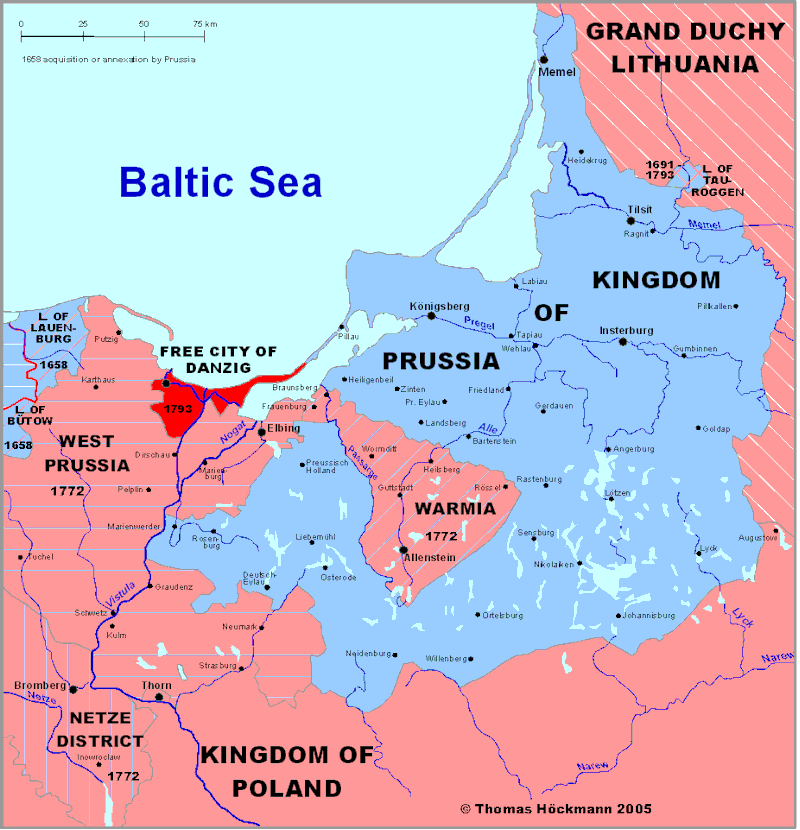Tuesday, January 29, 2008
Prussia during The Congress of Vienna
Prussia and Russia are in agreement during The Congress of Vienna, both countries believe that they should be compensated for what they lost. The Prussians wanted the large and wealthy kingdom of Saxony and parts of Germany, while the Russians wanted to restore and dominate Poland. These various demands made by Prussia and Russia led Castlereagh and Metternich to opposition and secret alliances. Prussia realized the risk of war ahead and finally settled for only parts of Saxony.
Sunday, January 27, 2008
Peasant Journal Entry
Journal,
Napoleon has slowly but surely taken over western Germany. Our country is especially surprised by his control in German affairs and we have mobilized our troops even though we have been at peace with France for more than 10 years. Our troops were outnumbered more than double at Jena, and were defeated by Napoleon’s armies. The war was then joined by the Russian army and lasted until the spring of 1807. I consider the worst part to be Prussia’s expected support of Napoleon’s continental system, which ceased trade with Britain. We have suffered under Napoleon’s rule for far too long. I only pray for the final days of his era.
Napoleon has slowly but surely taken over western Germany. Our country is especially surprised by his control in German affairs and we have mobilized our troops even though we have been at peace with France for more than 10 years. Our troops were outnumbered more than double at Jena, and were defeated by Napoleon’s armies. The war was then joined by the Russian army and lasted until the spring of 1807. I consider the worst part to be Prussia’s expected support of Napoleon’s continental system, which ceased trade with Britain. We have suffered under Napoleon’s rule for far too long. I only pray for the final days of his era.
Political Balance After the Congres of Vienna
Metternich, Castlereagh, Hardenberg, Talleyrand and Tsar Alexander I were all in agreement that the future security of Europe would be promised if, and only if, all five major powers were considered approximately equal, and no one power could overthrow the others. Not only was this was distribution of power extremely beneficial, it was also very effective. The period of time between 1814 and 1815 is considered one of the best examples of a balance of power in all of Europe.
Cultral Impact in 17th Century Prussia
More young people married for love rather than for economic reasons, schools and education led to the rise of new literature. Prussia led the way for universal education by encouraging the reading of the bible and attendance to elementary school. Education for commoners began in the 17th century and was headed by Protestant Prussia.
Thursday, January 17, 2008
The Changing Life of People (Prussia)
Social Impact: Extended families were popular as well as the rising of a late marriage combined with a Nuclear Family household. More marriages were delayed and maturity in a marriage was evident.Europe also experienced an illegitimacy explosion, illegitimate births rose steadily which led to a growing population.Economic Impact: Economic fluctuations and unemployment were constant threats to young men, Government run foundling homes were established. The cottage industry grew, created new opportunity for earing a living. Political Impact: Reign of Frederick the Great in PrussiaCultural Impact: More young people married for love rather than for economic reasons, schools and education led to the rise of new literature. Prussia led the way for universal education by encouraging the reading of the bible and attendance to elementary school.
Subscribe to:
Comments (Atom)



